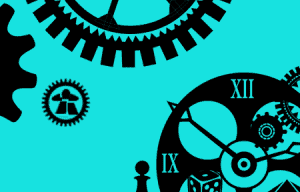
A subject I’d like to explore more on the blog when the League comes back from Winter break is the topic of addictiveness in gaming. The following post is a short pondering on the topic before we dive in fully and then a few links to League posts where we have touched on winning and losing dynamics.
What factors makes a game so good you play it again right away? While wins and losses is not the only part of the equation by far, one of the questions I’m specifically pondering is about loss in a cooperative game setting:
IS LOSING A GAME A KEY COMPONENT IN ADDICTIVENESS FOR A COOPERATIVE GAME?
SAVING THE WORLD AGAIN
Looking through that the lens of the the group dynamic (cooperative games) for now, (we’ll get to individual experiences another time), let’s look at a scenario in the popular game, Pandemic.
Pretend this group knows the game well, has played many times and does not have issue playing two games in a row sometimes. Which of these conditions will trigger that second game for this group:
- A) QUICK LOSS. An epidemic on turn 1 chains and ends the game on turn 2 after 10 minutes of play.
- B) LOSS. Things go south and they lose the game badly in the normal game time.
- c) CLOSE LOSS. The players lose but they are close. Maybe they can spot the 1-3 more moves they could have won in.
- D) CLOSE WIN. The players win the game, closely. They squeak out the win just in time.
- E) EASY WIN. The players work like a well-oiled machine. They beat the game with no problem or even breaking a sweat
I would argue that the scenarios that garner the most replay that night are A (QUICK LOSS) and C (CLOSE LOSS). My reasons – A was hardly a game and we all know that they are in for a game night experience. And C because they can taste victory. I think B, C, D and E are all lessor % replay than the quick loss because they are full games, but that being equal among the length, I think C creates the greatest desire to play again, being close enough to make you want it.
There’s no science behind that assumption mind you. (Yet. I now want to engineer some Pandemic game night experiment with like 10 tables and the same deck). For sake of argument, let’s say that you agree – notice that the two that would be more plays are both losses. I think that it is unlikely that D or E (wins) would get a second game without something different. I think the desire to win is what likely drives another game, and when you do achieve the win, your arc of interest and climax in that experience is heading back downward. Fortunately, Pandemic offers different characters, different difficulty and now expansions, etc. But you would need something to change I think for a game to occur after a win.
Now, take the same scenario and assess for a group of new players who have not yet played this game. Does this change the scenarios that would trigger a play #2?
In this case, I wonder if the same losses will inspire that game, or if they will cause those players to give up on the title. Pandemic is maybe a bad example here as it had many facets of success in the marketplace, but we could look at this win/loss angle to help inform future cooperative designs for the best possible chance at longterm success.
I’m not going to dig in much more than that just yet. First of all, a bunch of us are at BGG.CON as I write this with many more wins and losses to experience at the tables. But if you have stories of winning or losing that made you want to play the game again – or not, feel free to share them and we’ll dig more into this topic in 2016. In the meantime, here are some other articles about winning or losing in games that we have shared before at the League:
—
Fundamental Reason to Play: Be a Good Loser by guest author, Eliot Hochberg
Everyone Can Win, Everyone Can Lose by Luke Laurie
‘Hey, Loser!’ Keeping Players Engaged, Even When They’re Behind by Seth Jaffee.
Designing for the Four Types of Gamers by Michael Domeny
Making Volatility Work in Your Game by Scott Caputo








